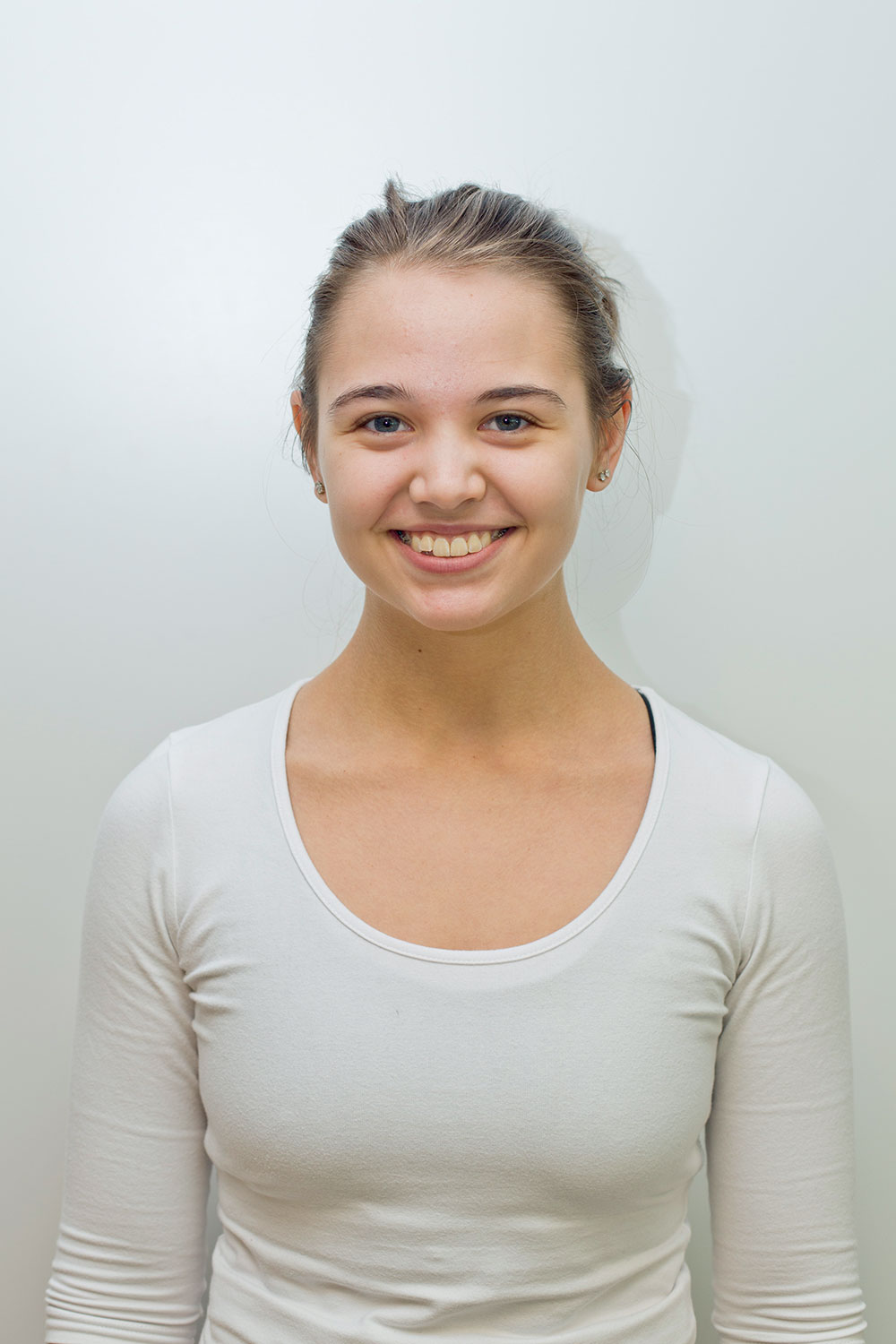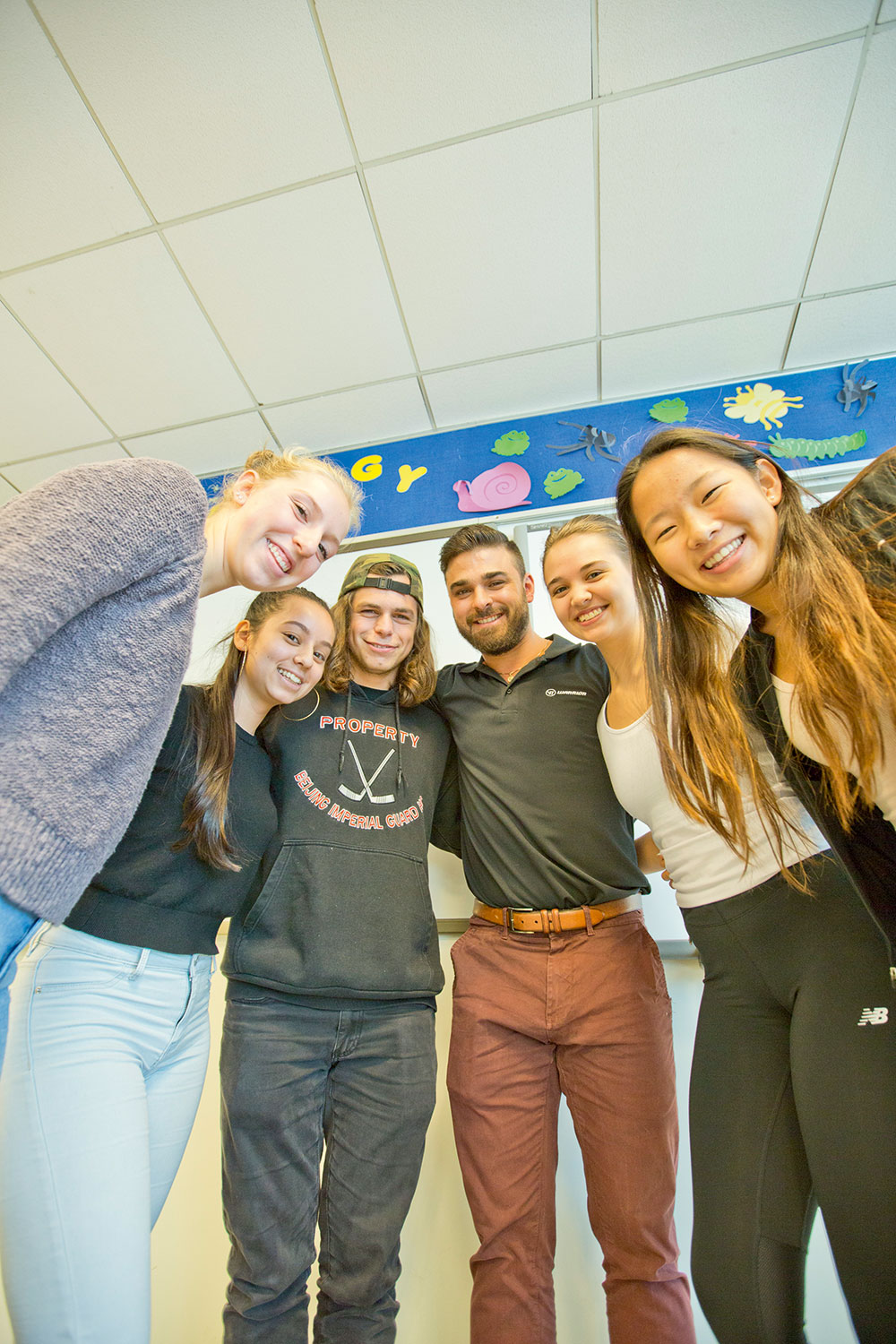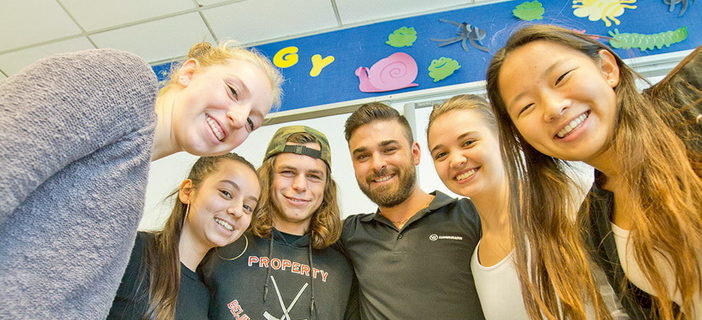Although Beijing is not well-known for sports, students at International School of Beijing (ISB) not only practice sports in their free time, but many are also interested in pursuing a career in sports. Former pro-athlete Mike Kusy, originally from Saint Catharines, Ontario, Canada, left the Bloomington Prairie Thunder (Illinois, US) in favor of the University of Guelph (Ontario, CA) varsity team. After successfully balancing sports and studies, Kusy has been furthering his education, studying Chinese History at the University of Guelph. He came to Beijing amidst his Master’s studies, taking the opportunity to engulf himself in the culture and environment of his studies and gaining a transnational perspective on his Master’s thesis, written on the development of ice hockey in China. Kusy, a certified Hockey Canada coach, has now been in Beijing for a little over a year, coaching a junior hockey team, Tiger Club, in Beijing’s rinks.
Max, 17
When you were playing professionally, what problems did you encounter? How can what you learned playing hockey in North America be applied to what you do today?
Playing professionally had its challenges, because you are being paid to play. Every game is meaningful in that it determines whether you have a job the next day. In university hockey, depending on where you are in the lineup, because you can’t change the university you’re at, get traded, or easily leave and start afresh somewhere else. The university is where you’re studying, and you can’t just leave because you’re stuck in a rut in hockey.
Turning things around, you just have to take a positive outlook. Even if you’re not playing well, you have to be a good team mate, a good person in the dressing room, and a team player on the bench, cheering on your teammates. At the end of the day, no matter what, if you’re having success or if you’re struggling, as the late Pat Summit would say: being a team player is something we all should strive to be while playing sports.
What can be applied today from my hockey playing career to my coaching career is that you need to be prepared. Preparation as a coach is more work than preparation as a hockey player because you’re preparing for the entire team’s success. You’re responsible for every player on the ice, and you need to motivate not just yourself, but the whole team.
Playing hockey gave me a passion and understanding of the game, and the realization that being effective is important. As a player, I looked forward to the games, but now as a coach, I look forward to the practices because that’s my classroom, where I can make a difference.
Ivana, 18
How important is nutrition in training?
Nutrition is very important. You have to eat good foods, catering to all the different food groups. Eat your carbs! But, eat good carbs, like rice. You don’t want to be having sugar carbs, but your body needs fuel and carbohydrates are fuel.
Most of us remember to eat before a game, but don’t forget to refuel after working out! Fluids, carbs, and protein are the most important ingredients for your post-workout recovery. Whether it is practice, a game, or training, you need to eat to help your body recover and recoup. Your body will be craving nutrients, so eat carbs to give your body the energy it needs.
If you’re stressed out before a competition and can’t eat, or just lost your appetite, refer to liquids over solids. Sports nutrition drinks and liquid meals can be digested more quickly than solid food as they don’t need to be broken down.
Marisa, 17
How different are your workouts now, compared to before?
When I was younger, I worked out to look big and muscular. But, I’ve realized that with big muscles you lose mobility, flexibility, and sometimes even acceleration. Since then, I’ve wanted to be less bulky, but more strong. To achieve this, I do more body and band workouts with high repetitions.
Cindy, 17
Have you had severe injuries? Did you do rehabilitation?
I’ve had severe injuries; I’ve broken half a dozen bones and separated my shoulder multiple times. You just have to fight through the adversity and pain, letting the healing process take its course. My advice is to listen to your body, take rehabilitation, and listen to the physical therapists’ professional advice. Take all the necessary steps it takes to get your body back to the way it was before, to make it stronger. Don’t push it, because you only have one body, so take good care of it.
Iris, 17
How do you keep yourself motivated?
To keep myself motivated, I read and watch inspiring stories about former pro-athletes, current athletes, or just motivational people with wise things to say about life and how to keep improving yourself. You always want to be a better version of yourself, to not compare yourself to anybody else, but to improve yourself every day. In a similar way, I am motivated to be an influential coach and mentor for younger generations.
For example, hockey has always come easily to me, while school has not. When I became a student athlete, I didn’t know how to be a student. But, the approach is similar as in sports and hockey.
When you’re playing hockey, you have a group of people who all have different emotions, and different feelings towards certain things, but you’re all there for a common goal, to win. Winning fixes everything, but it’s the attitudes that can take you to the next level. I’m on a team. I’m engulfed in a culture that’s good for my lifestyle; it keeps me busy and active. I have to think about how it’s benefiting my life even if the on ice is not going well. I used the same discipline, motivation, and determination to face adversity and become a better student.

From left to right, Marisa, Iris, Max, Mike Kusy, and Cindy
This article originally appeared on pages 32-33 of the November/ December issue of beijingkids magazine. Click here for your free online copy. To find out how you can obtain a hard copy, contact distribution@truerun.com.
PHOTOS: UNI YOU, COURTESY OF MIKE KUSY




